When many people think of Germany’s road rules, the first thing that comes to mind is the famous speed-limit free section of the Autobahn. Though speeds of 130km or less are recommended, speed junkies generally don’t have anything to fear when they step on the accelerator – although reckless driving, like speeding in rainy or icy conditions, can be penalised by the police.
Nevertheless, there’s a lot more to driving in Germany than getting an adrenaline rush on the motorway. In fact, there are numerous strict rules to follow – and many of the penalties for breaking them have been tightened up in recent years.
Since 2014, authorities have used what’s colloquially known as the “Points in Flensburg” system, which refers to the location of the Federal Motor Transport Authority. Drivers can accrue up to eight points on their licence for various misdemeanours, at which point their licence is revoked.
While it’s possible to get another driving licence if this happens, it’s not a particularly straightforward process: a suspended driver first has to wait for a certain amount of time, and will then be subject to a psychological and medical assessment.
Of course, the best way to avoid getting points on your licence – or facing hefty fines – is to have a good grasp of how drivers should behave. Here’s an overview of some of the main rules and penalties you should know if you plan to spend some time driving in Germany.
READ ALSO: What you need to know about getting a German driving licence
Speeding fines
Generally, there are two types of speed limit you’ll need to observe in Germany: in built-up areas, drivers should observe speed limits of up to 50km per hour, and in non-residential zones, drivers can generally drive up to 100km per hour.
As mentioned, the Autobahn does have some sections where speed limits don’t apply, but a maximum speed of 130km per hour is recommended. People who want to drive particularly fast generally drive on the far-left lane, where the minimum speed is 60km per hour.
However, even here, drivers are expected to have their car in a road-safe condition and adapt their behaviour to weather conditions, since police can still use their discretion to penalise drivers they feel aren’t being careful enough.
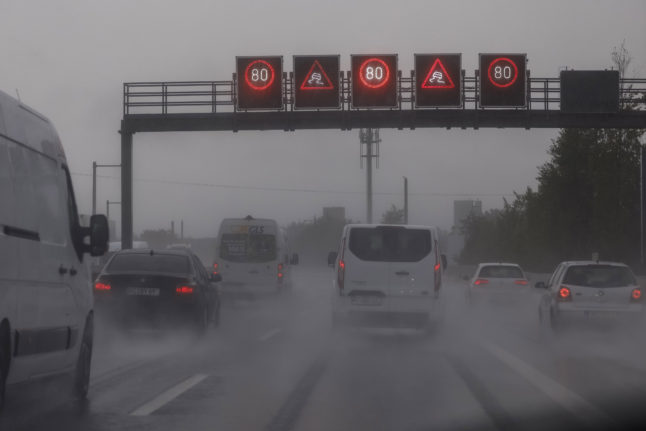
The fines for exceeding the limit range from €30 for going up to 10km per hour over the limit to €680 for going 70km per hour or more over the speed limit. Authorities will also penalise drivers with points on their licence and driving suspensions for more severe violations.
For example, drivers that travel more than 21km over the speed limit can expect to get an €80-90 fine and a point on their licence, and if they’re caught going this fast in a residential area, they’ll also face a one month suspension of their license. The same applies for people going 26km per hour or more over the limit in a non-residential area.
People going more than 41km over the speed limit, meanwhile, will get a €200 fine, at least two points on their licence and a suspension of either one or two months, depending on whether they were driving in a residential zone or not.
Travelling more than 70km per hour over the limit will land you a €680 fine, a three-month suspension and two points on your licence.
READ ALSO: EXPLAINED: Germany’s tougher driving fines
Driving under the influence
The consequences for driving under the influence of alcohol depend on a number of factors, including how much you’ve drunk, how old you are, and whether it’s your first offence.
In general, drivers must have no more than 0.5 percent alcohol in their blood to get behind the wheel. People caught with a blood alcohol content of between 0.5 and 1.09 percent face a fine of €500 and a one-month driving ban. For second offences, this goes up to €1,000 and a three-month driving ban, while third offences are punished with a €1,500 and a three-month driving ban. In every case of being caught over the limit, drivers get two points on their licence.
These rules get stricter for anyone under the age of 21 or who has had their licence for less than two years. In these cases, no alcohol whatsoever is permitted before driving and people who break that rule will get a €250 fine and a point on their licence.
People with a blood alcohol level of 1.1 percent of higher are considered completely unfit to be driving and will face criminal proceedings that could result in hefty fines and even prison time. They’ll also get three points on their licence and a lengthy driving suspension.
All of this assumes that there are no accidents or reckless driving involved. If you are deemed to be driving dangerously while drunk, you’ll likely have to go to court and face a much harsher penalty.
READ ALSO: The German rules of the road that are hard to get your head around
Parking violations
Parking violations are generally handled by the Ordnungsamt on a local or regional level, but they generally vary from small fines of around €10 for parking without a permit or ticket to fines of around €70 for more serious violations like blocking emergency vehicles or parking on the Autobahn.
To stay on the right side of the law, look out for blue and white signs with a ‘P’ that indicate that parking is permitted – though you may still need to buy a ticket.
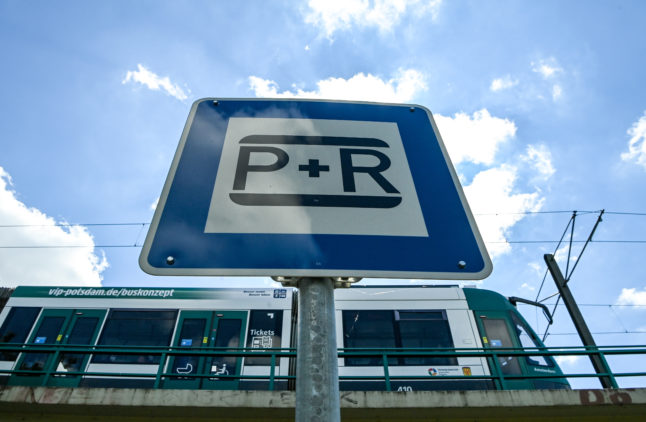
Running a red light
Though running red lights isn’t entirely uncommon, drivers who do it should expect tough penalties from the authorities if caught. The most lenient of these is a €90 fine, but if drivers run a light that has been red for at least a second and cause damage, this will increase to €360, two points on the licence and a one month driving ban.
Railroad and pedestrian crossings
Not giving way to pedestrians at a pedestrian crossing can lead to a fine of €80 and a point on the licence. For violations at railroad crossings, the penalties are much steeper: you can expect a €240 fine, one point and a one-month suspension for running a warning light and a €700 fine, two points and a three-month suspension for crossing when the gate is closed.
Hit and run
Understandably, hit and run incidents are taken incredibly seriously in Germany. Leaving the scene of an accident before the police arrive can land you three points on your licence, while causing an accident and fleeing the scene is likely to result in a fine, licence suspension and even time behind bars.
Tailgating
Tailgating penalties vary dramatically depending on the speed at which you’re driving. At high speeds, driving too close to the car in front can result in fines of up to €400. If you’re travelling slower than 80km per hour, a much more modest €25 fine is the norm.
Turning, intersections and lane changes
Especially when driving in cities, it’s important to signal properly, be careful and attentive when turning and observe the proper system of right-of-way, which generally follows a “right before left” principle.
People who don’t indicate when turning or changing lanes will only face a proverbial slap on the wrist with a fine of just €10. However, failing to observe the proper right of way rules will likely land you a much steeper fine of €85 – so make sure you’re clued up about these.
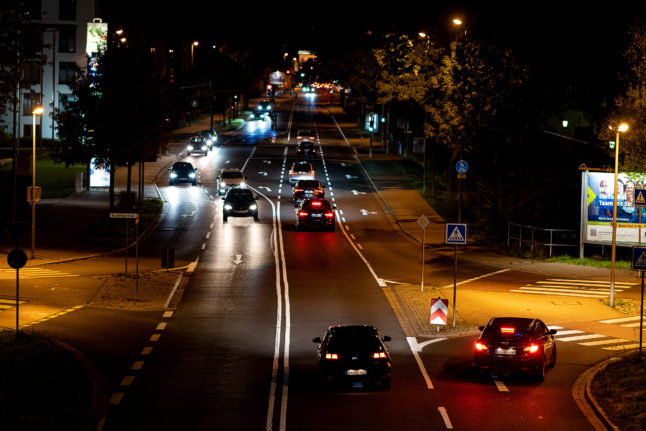
Overtaking on the wrong side – or unsafely
In German cities, you should always overtake on the left – and not doing so could result in a fine of €30. If you try to pass another car without observing road signs or lane markings, you’ll likely be suspended from driving for at least a month, as well as getting two points on your licence and a €300 fine.
READ ALSO: How much does it cost to get a driving licence in Germany?
Mobile phone and seatbelt violations
Of course, traffic violations are not just about how you drive your car, but what you do when you’re in it. Talking on or otherwise using your mobile phone while driving will result in a fine of at least €100 – but this could be much higher if you end up causing an accident.
Failing to put on your seatbelt or fasten it properly will land you a €30 fine from the authorities, while failing to put seatbelts on children in the car results in a fine of €70.
Driving in a defective vehicle
Keeping vehicles in a road-safe is vital for any driver in Germany – and there can be steep fines for those who don’t. Unsafe deficiencies in a vehicle can see drivers slapped with a €90 fine, while driving with inadequate tires gets you a €60 fine and driving with the licence plate obscured gets a €65 fine.

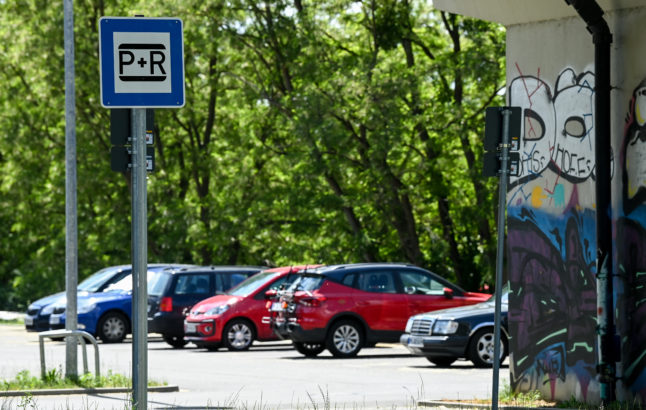
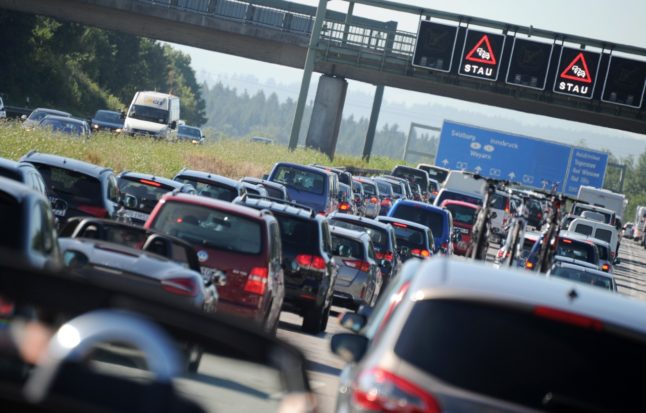
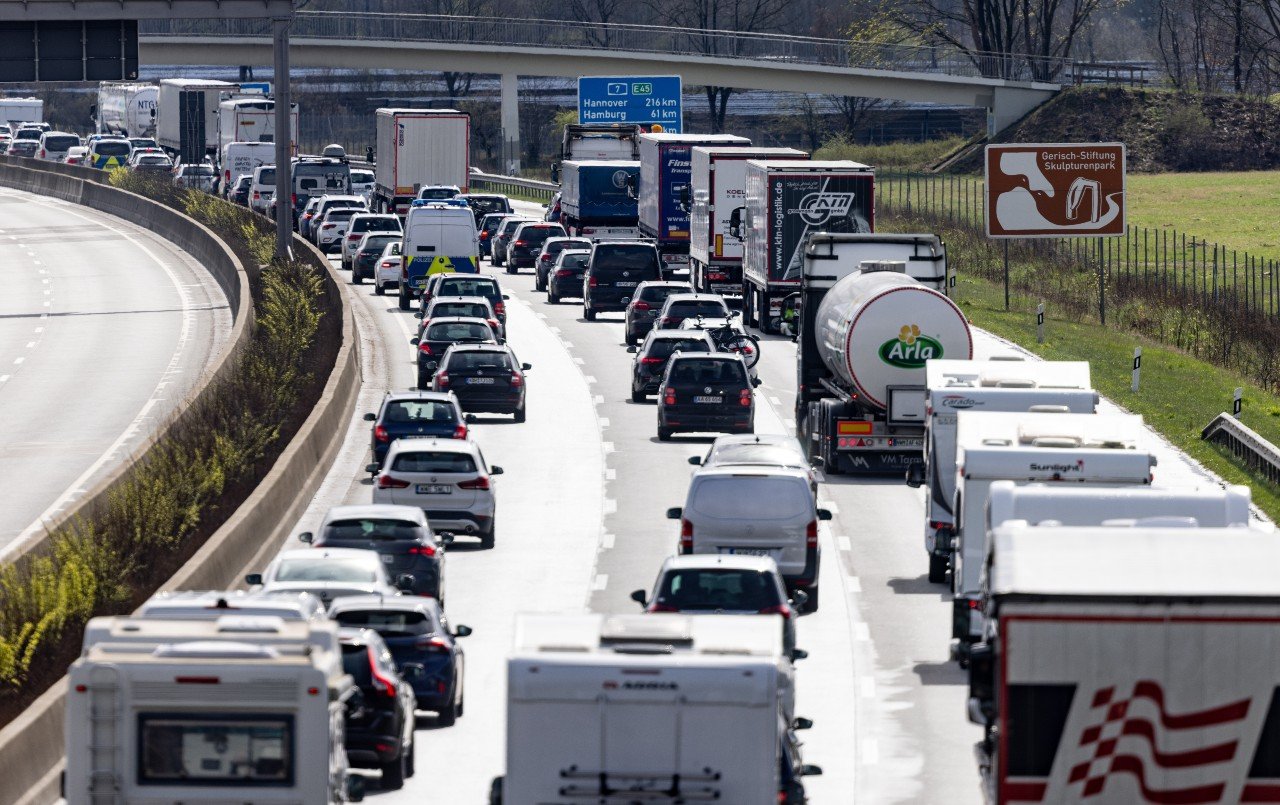

 Please whitelist us to continue reading.
Please whitelist us to continue reading.
Member comments